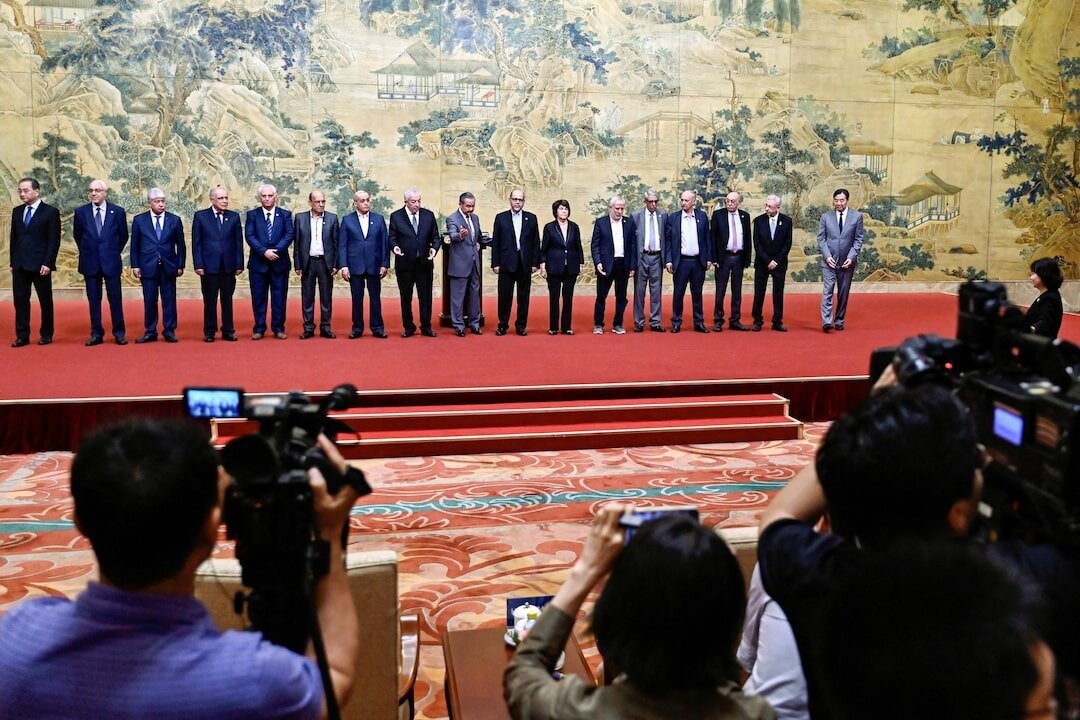By Shahrokh Saei
China declares brokering Palestinian unity months after healing Iran-Saudi rift

TEHRAN- Since Israel declared war on Gaza on October 7, Prime Minister Benjamin Netanyahu has repeatedly vowed to achieve “total victory” over Hamas and “destroy” the resistance movement.
Nealy 10 months have passed since Israel launched the onslaught but the Netanyahu regime has failed to deliver on such promises.
Hamas and other resistance groups have dealt humiliating blows to the Israeli army on the battlefield. The Israeli army's total fatalities since the launch of the onslaught is nearly 700.
In addition to dealing serious blows to Israeli forces, the resistance movement has also emerged as a political heavyweight in the international arena.
On Tuesday, Hamas and Fatah signed a Chinese-brokered agreement in Beijing as they seek to settle their differences and maintain Palestinian control over Gaza amid Israel’s sinister postwar plans for the territory.
According to Chinese media, the two Palestinian factions signed the Beijing Declaration on “ending division and strengthening Palestinian unity”.
Officials from Hamas and Fatah met with Chinese Foreign Minister Wang Yi on Tuesday following reconciliation talks that also involved 12 other Palestinian factions.
Wang said the agreement was “dedicated to the great reconciliation and unity of all 14 factions”.
The top Chinese diplomat noted that “an agreement has been reached on post-Gaza war governance and the establishment of a provisional national reconciliation government”.
Hamas delegation representative Mousa Abu Marzook highlighted the role of unity among Palestinians.
The singing of the deal, however, infuriated Israel.
Israel's postwar plots
According to a document that was leaked weeks after October 7, the Israeli Intelligence Ministry had called on the regime’s army to evacuate the civilian population to Egypt’s Sinai Peninsula.
Netanyahu and his far-right ministers supported the mass expulsion of the Palestinians.
The Israeli regime is opposed to any role by Hamas in governing Gaza after the war ends. Tel Aviv has also rejected calls from the administration of US President Joe Biden for the Palestinian Authority (PA) to run Gaza.
PA remains unpopular
Fatah dominates both the Palestine Liberation Organization (PLO) and the Palestinian Authority (PA). It is the interim Palestinian government established in the West Bank after the signing of the 1993 agreement known as the Oslo Accords.
The PA held administrative control over Gaza until 2007. But Hamas has ruled Gaza since then, a year after winning the 2006 legislative elections.
Fatah and Hamas have been bitter rivals since the latter won the 2006 elections.
Palestinians view the PA as corrupt, out of touch, and a subcontractor for Israel because of their joint security coordination.
The Palestinian public also believe that the PA, headed by President Mahmoud Abbas, is unable to provide security in the face of regular Israeli incursions into the occupied West Bank.
According to a survey carried out by the Palestinian Center for Policy and Survey Research in December last year, more than 60% of Palestinians want the PA to be dissolved. The opinion poll also revealed that nearly 90% of respondents want President Abbas to step down.
Rising support for resistance
However, support for Hamas has been growing since it conducted a surprise military operation in southern Israel on October 7 which was followed by the regime’s genocidal war on the Gaza Strip.
The deal signed in China can pave the way for unifying Palestinians and foiling Israeli plots.
Hamas’ growing political clout is rooted in the stiff resistance put up by its fighters in Gaza. In fact, the resilience of Palestinians has humiliated Israel and deepened its international isolation.
No to talks with Israel
The Palestinian Authority should realize that Israel only uses negotiations as a smokescreen to continue its land grab policy and prolong the occupation of Palestinian lands.
Fatah and Hamas can strengthen their unity if the Palestinian Authority throws its weight behind resistance movement against Israeli occupation and atrocities not only in the West Bank but also in Gaza.
The ball is now in the court of the Palestinian Authority. The PA should come to its senses and wake up to the fact that the Israeli occupation and brutalities will only end through resistance and unity among Palestinians. It should also understand that negotiations with
Israel are a futile endeavor that will only embolden the apartheid regime to continue its atrocious crimes.

No comments:
Post a Comment